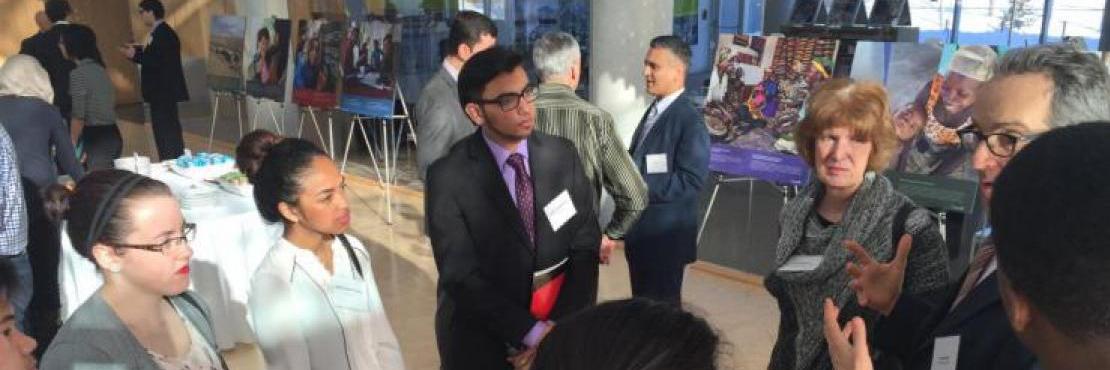It is funny to sit here on the bus ride back and ask myself what I learned. Among all of the lofty questions, lengthy debates, and impassioned discussions it is not a simple task to write out in clear words how my ideas about development have changed. In fact, I can’t say that my ideas about development have changed necessarily, but rather my ideas about development ‘peoples’ have changed.
A keener IDS student might notice that I didn’t use the term development ‘practioner’ - as we are all too accustomed to in this program. In the end, I think the word, ‘practioner’ fails to encompass the character and the compassion of the person that inhabits that role in development. One of the key themes that this trip seemed to stand out, not only to myself but to many of my fellow students as well, is that the people we met seemed so real – so human.
While in classrooms we are buried in complex critical analysis about development. I tend to think about and respond to the works of ‘practioners' as these puppets that perpetuate either good or bad development practices. But the reality is that many of these people have struggles and ideals as complex as my own. Once I broke beyond the elevator introductions of the networking partners at the Aga Khan Foundation of Canada, I was able ask about what these people thought about their own world, and I listened to how their character shaped their actions and their careers. One of the more interesting examples of this was a woman who talked about switching from her development studies program to major in Spanish Literature. The reason being was not one of academic strategy or professional development, but to follow her (now) husband on a trip to Spain. Her and I also shared a brief chat about her hobby of quilting, which allowed her to lead a small workshop where she was able to share about quilting with her host community in Cameroon.
Some were gracious enough to share about their relationships, while others were willing to let the bleeding heart of their youth spill into the conversation. Questions and choices about majors, grad school, internships, workplace skills, opinions about working in development all seemed to boil down to some form of passion and compassion. Professionalism aside, this all demonstrated qualities of humility and humanity - that somehow these people that we had met all shared the innate character of being humble and conscious of the lives and actions of themselves and the people around them.
Putting on a suit and dressing my words up into the most formal prose had detracted from the point of my being here. Although we were ‘networking’ at a professional organization, I was there to learn and engage. What I engaged with the most were the conversations that moved beyond the proper and prim to ones of hobbies and humor. It was conversations like this that lead to the passing of business cards and excited recollections of colleagues and friends who worked in a myriad of development issues. It was here that we found the soul of the development profession and the network of passionate people.
This is all to say that, while the professionalism is important, what matters equally as much (if not more) are the people with whom we work. My immediate peers in IDS know and understand what it is like to be passionate, to be angry, to strive and struggle to bring about change to this world – to our world. It is no different with the people of the Aga Khan Foundation and Global Affairs Canada. Over and over I would hear from these people that at the end of the day, it is passion and commitment that will take you through your career. The journey to finding our place in the world of development is a nearly unpredictable journey of trial and error (and luck). But being passionate will always surround you with people who share in your vision and who are quick to pass information and connect you to networks.
So IDS’ers, my message to you is that while we live in the world of development, I too live in your world of development. I am proud to be a part of this program and I look forward to working with you as the years pass. I may bring you up in a networking event to the development students of the class of 2030 where I will watch excitedly as they scratch your name into their networking notebook and I will know that this is development too!
